
Team
CRiCity Lisbon Team:
Eunice Castro Seixas - Principal Investigator (PI)
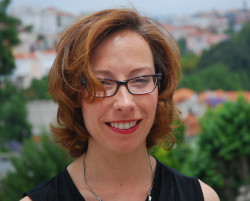
Eunice is a certified psychologist by the Portuguese Order of Psychologists and she has worked as a psychologist in educational and health contexts in Portugal.
More recently, she has been working as a research fellow in Portugal, in social sciences projects funded by the Portuguese Foundation for Science and Technology (FCT), namely at CECS, University of Minho; CIS, ISCTE -IUL, Lisbon and CIPSI, University of Minho, Portugal, respectively in the areas of communication sciences, social and environmental psychology, and psychology of justice/criminology.
In 2017 she was a postdoctoral fellow at SOCIUS/CSG, Lisbon School of Economics and Management (ISEG), working on her own project on environmental and corporate governance, multistakeholders’ dialogue and transparency.
She is currently working as a Researcher at SOCIUS/CSG, ISEG, University of Lisbon, within the CRiCity project that she also coordinates.
She has also experience in higher education, as an assistant at Fernando Pessoa University (2004-2006), and more recently as an invited assistant at Escola Superior de Educação de Bragança, IPB, Bragança, Portugal, where she has been teaching for the last two semesters (2018-2019), namely to the Master and TESP courses of social service/social education.
She published peer-reviewed articles and chapters in international books on a variety of topics, namely: development aid, NGOs and human rights; terrorism; HIV/AIDS counseling; Lusophony; education; citizen participation in environmental issues and contestation of environmental laws, social movements in the media; political discourses, and organizational transparency, among others.
Her current research interests are focused on issues of the right to the city and child-friendly cities, participatory methodologies, corporate governance and transparency and also security governance and intelligence in the European Union.
Contact:
eunice.seixas@cricity.pt
euniceseixas@gmail.com
euniceseixas@socius.iseg.ulisboa.pt
Homepage and CV:
https://csg.rc.iseg.ulisboa.pt/member/?userID=65
https://orcid.org/0000-0001-5356-60146014
Paulo Castro Seixas - Co-PI
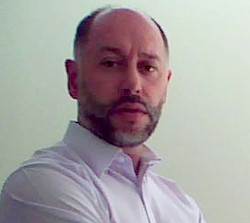
He was also Director of the Public Sciences and Public Policy academic journal (2016-18).
His main research areas are urban studies (with fieldwork in Portugal, Brazil, Romania and East Timor), and the Socio-Anthropology of Timor-Leste.
Paulo Castro Seixas coordinated a number of research projects (e.g. as coordinating partner of a European network in 1995, as coordinator of two projects funded by FCT in East Timor - 2000-2011).
He is currently the leader of the Portuguese Timorese team of the H2020 CRISEA project (2017-2020) and is Co-PI and coordinator of the case-studies in Belém and Ajuda of the FCT (2018-2021) CRiCity project.
Paulo Castro Seixas also has a consulting career. He is presently a consultant of Cascais Municipality for the implementation of Cascais-Child-Friendly City.
Benedita Portugal Melo
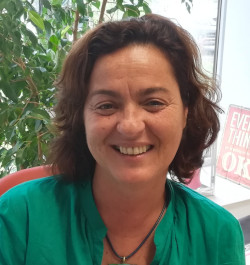
She is an Assistant Professor at Instituto de Educação, University of Lisbon, a researcher member of UIDEF and a collaborator of Observatório Permanente da Juventude (ICS-UL).
She is currently the Vice-President of the Portuguese Sociological Association.
Her main research areas are in the domain of Sociology of education, Sociology of Childhood and Educational Policies.
She participated in several R&D projects, and currently co-coordinates, with Ana Diogo (University of Azores) and Manuela Ferreira (University of Oporto) the project “De pequenino se torce o menino : a fabricação do sucesso escolar nos primeiros anos de escolaridade”/ “Best to bend while it is a twig: the fabrication of school success in the first years of schooling”).
She is the author, co-author and editor of several publications among which: “A Escola navega na web. Que onda é essa?” (Crivo Editorial, 2019); “Exames e Lógicas de fabricação de bons alunos nas classes médias” (Cadernos de Pesquisa, 2018); “Os exames do 4º ano na blogosfera: concepções sobre escola, crianças e dinâmicas familiares” (Sociologia, Problemas e Práticas, 2016); “O Futuro em Aberto” (Mundos Sociais, 2015); “40 Anos de Políticas de Ciência e de Ensino Superior” (Almedina, 2015); “Entre Crise e Euforia: práticas e políticas educativas no Brasil e em Portugal” (FLUP, 2014); “Entre Mais e Melhor Escola em Democracia: Inclusão e Excelência no Sistema Escolar Português” (Mundos Sociais, 2014).
Catarina Tomás
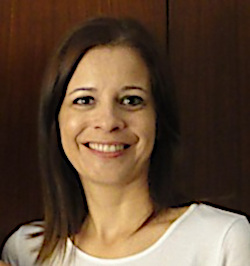
Catarina holds a PhD in Childhood Studies - Sociology of Childhood (2007) with the Essay “’There are Many Worlds in the World’. Cosmopolitanism, Participation and Children's Rights” (Porto, Afrontamento, 2011).
Since 2018 she is one of the coordinators of the thematic section of Sociology of Childhood of the Portuguese Sociological Association (APS).
She is the author, co-author and editor of several publications in the fields of Sociology of Childhood and Early Childhood Education.
Maria Fernandes-Jesus
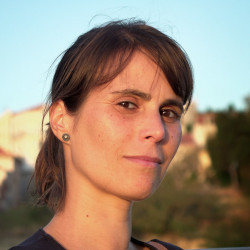
Since 2015, she has been an Integrated Researcher at the Center for Social Research and Intervention (CIS-IUL), Instituto Universitário de Lisboa (ISCTE-IUL).
She has research experience in the fields of collective action; political engagement with environmental issues; and civic and political participation among young people and minority groups.
Interested in applied research, she is currently involved in the evaluation of community intervention programs focusing on participation and citizenship.
You can find her CV here: https://ciencia.iscte-iul.pt/authors/maria-fernandes-jesus/cv
Sara Calado Gonzalez (CRiCity fellow at CAPP, ISCSP)
Sara Calado Gonzalez holds a degree in Anthropology from Faculdade de Ciências Sociais e Humanas – Universidade Nova de Lisboa. In the same institution, she completed a Master's degree in Sociology, specialization in “Comunidades e Dinâmicas Sociais”. She is currently a researcher associated with Centro de Administração e Políticas Públicas (CAPP), ISCSP, within the CRiCity project.
Rita Cássia Silva (CRiCity fellow at CAPP, ISCSP)
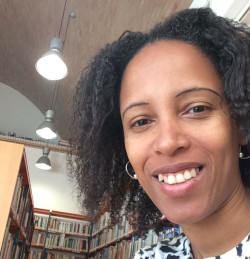
Art Educator and Brazilian actress based in Portugal since 2000.
Since 1994, she has worked in artistic projects (theater, art-education, performance, cinema, audiovisual, production) in Brazil, Portugal, Italy and Spain.
She attended the Degree in Theater / Drama at Escola Superior de Teatro e Cinema (ESTC), Portugal.
She worked with children of the Movement of the Modern School in Portugal through the Project of Art Education ‘Expression Life’, in the Schools A Voz do Operário and Centro Educativo do Restelo A Voz do Operário, from 2010 to 2013.
She was part of the Education for Art Project (FAPLX) in Quinta de Marrocos School Grouping and Pedro de Santarém Schools Group, from 2007 to 2014.
She completed the Training Course for Trainers Curriculum Development in Arts - Methodologies and Practices in Theater - Aesthetic Education Program - Ministry of Education and Science, Directorate General of Education (DGE), Lisbon, Portugal, 2013.
Integrates the project “Life in Syntropy”, Mértola, Portugal, through Creation in Performance Art.
Activist for safeguarding the rights of children and their mothers.
CRiCity Porto Team:
Joao Teixeira Lopes - Coordinator of the case-studies in Porto
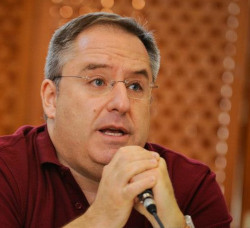
Ph.D. in Sociology of Culture and Education (1999) with the Essay “The City and Culture - A Study on Urban Cultural Practices” (Porto, Afrontamento, 2000).
Full member of the Observatory of Cultural Activities - between 1996 and 1998.
Coordinator of the team of the National Report on Cultural Policy (1985-95) presented in 1998 at the Council of Europe (Lisbon, Portugal on Cultural Policies, Observatory of Cultural Activities, 1998).
Programmer of Porto European Capital of Culture 2001: responsible for the involvement of the population and a member of the original team that drafted the application submitted to the European Council.
Represented the Left Bloc as a deputy to the National Assembly (2002-2006).
Scientific Coordinator of the Institute of Sociology Faculty between 2002 and February 2010.
Director of the Journal of Sociology between 2009 and February 2013.
João Teixeira Lopes has published 26 books (alone or in co-authorship) in the fields of sociology of culture, city, youth and education, as well as museology and territorial studies.
He received The Honour "Palmes Académiques" by the french Government.
He is currently the President of the Portuguese Sociological Association.
Lígia Ferro
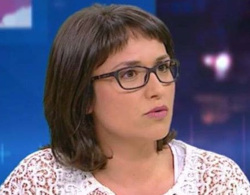
She is currently a member of the Executive Committee of the European Sociological Association (ESA) and a member of the board of the European Network of Observatories in the Field of Arts and Cultural Education - UNESCO.
Since 2016 she is a member of the directive committee of the Portuguese Sociological Association (APS).
Lígia Ferro was a visiting scholar at universities in Europe, the United States of America and Brazil.
She is the author, co-author and editor of several publications, including the books "Moving Cities: Contested Views on Urban Life" (2018, Springer) and “Arts and Cultural Education in a World of Diversity – ENO #1” (2019, Springer).
Lately, she has been working in the fields of urban studies, arts education and migrations.
Júlia Rodrigues (CRiCity fellow at FLUP)
Júlia Rodrigues has a research grant from FLUP in the CRiCity project. She is currently a PhD student in Sciences of Education at University of Minho, specialization in “Sociologia da Educação e Política Educativa”. In recent years, she has been working as a research fellow in several projects in the area of education.
Inês Barbosa (CRiCity Fellow at FLUP)

She is currently a research member of Institute of Sociology (UP) and a collaborating member of the Research Centre on Child Studies (UM).
She has been working with participatory, emancipatory and art's based research within the framework of a "public sociology".
She is a Theatre of the Oppressed ‘joker’ and an associative leader. She develops artistic work in the areas of performance, video and sound, focusing mainly on political and social issues.
As a researcher, teacher and trainer she is interested in: critical education; citizenship and social mobilizations; child and youth participation; children's rights and human rights; gender equality; art and intervention in the public space.